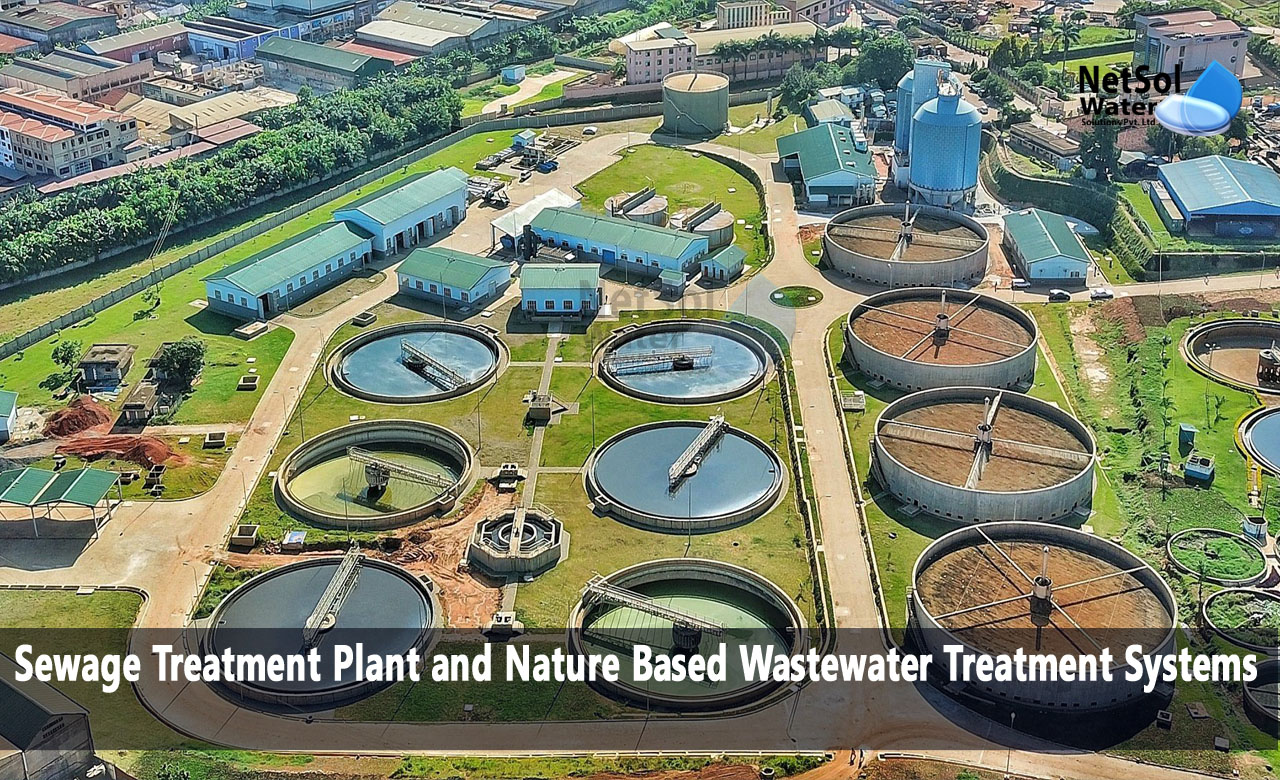What is STP Plant and Nature Based Wastewater Treatment Systems?
In our pursuit of sustainable and environmentally friendly solutions, sewage treatment plants are increasingly embracing nature-based wastewater treatment systems. These innovative systems harness the power of natural processes to treat wastewater effectively, providing numerous benefits in terms of efficiency, cost-effectiveness, and environmental sustainability.
In this blog, we will explore the concept of nature-based wastewater treatment systems and their integration into sewage treatment plants.
Understanding Nature-Based Wastewater Treatment Systems
Nature-based wastewater treatment systems, also known as natural treatment systems or ecological wastewater treatment systems, utilize natural processes to remove pollutants and treat wastewater. These systems mimic the self-purification processes found in natural ecosystems, providing an environmentally friendly alternative to conventional treatment methods. Examples of nature-based wastewater treatment systems include constructed wetlands, reed beds, and biofiltration systems.
Harnessing the Power of Natural Processes
- Constructed Wetlands: Constructed wetlands are engineered systems that mimic natural wetlands. They consist of shallow basins filled with aquatic plants, such as reeds and cattails. As wastewater flows through the wetland, natural processes including filtration, adsorption, microbial activity, and plant uptake remove pollutants and nutrients. Constructed wetlands not only effectively treat wastewater but also provide habitat for wildlife, enhance biodiversity, and contribute to the aesthetic appeal of the surrounding environment.
- Reed Beds: Reed beds are another nature-based wastewater treatment system that utilizes a bed of aquatic plants, typically common reed (Phragmites australis). Wastewater flows horizontally through the bed, and the plants and associated microbial communities play a vital role in removing contaminants through filtration, adsorption, and biological degradation. Reed beds are particularly effective in removing organic matter, nitrogen, and phosphorus, making them suitable for various wastewater treatment applications.
- Biofiltration Systems: Biofiltration systems use a combination of biological and physical processes to treat wastewater. These systems typically consist of a filter bed filled with porous media, such as sand or gravel, which supports the growth of microorganisms. As wastewater percolates through the filter bed, organic matter and other pollutants are degraded by the microbial community. Biofiltration systems offer effective treatment and can be combined with other natural treatment processes to achieve desired water quality objectives.
Benefits of Nature-Based Wastewater Treatment Systems
- Environmental Sustainability: Nature-based wastewater treatment systems provide a sustainable and environmentally friendly approach to wastewater treatment. They require less energy compared to conventional treatment methods, reduce the need for chemical inputs, and minimize the production of sludge and other waste products. These systems also promote the conservation of water resources and enhance ecological resilience by creating habitats for diverse plant and animal species.
- Cost-Effectiveness: Nature-based treatment systems can offer cost advantages over traditional treatment methods. They often have lower capital and operational costs, as they rely on natural processes and require less complex infrastructure. Additionally, the maintenance and operational requirements of these systems are generally less demanding, resulting in long-term cost savings for sewage treatment plants.
- Scalability and Flexibility: Nature-based treatment systems can be designed and implemented to meet the specific needs of different contexts. They are scalable and can be adapted to treat wastewater from small communities, industrial facilities, or even individual households. These systems can also be combined with conventional treatment processes, providing flexibility in the overall wastewater treatment approach.
Conclusion
Nature-based wastewater treatment systems offer a sustainable and effective approach to sewage treatment. By harnessing the power of natural processes, these systems provide efficient pollutant removal, promote environmental sustainability, and offer cost advantages over conventional treatment methods. Integrating nature-based treatment systems into sewage treatment plants not only improves the overall efficiency and ecological performance of these facilities but also contributes to the conservation of water resources and protection of ecosystems. As we move towards a more sustainable future, nature-based wastewater treatment systems play a vital role in creating resilient and environmentally conscious sewage treatment infrastructure.
Netsol Water is Greater Noida-based leading water & wastewater treatment plant manufacturer. We are industry's most demanding company based on client review and work quality. We are known as best commercial RO plant manufacturers, industrial RO plant manufacturer, sewage treatment plant manufacturer, Water Softener Plant Manufacturers and effluent treatment plant manufacturers. Apart from this 24x7 customer support is our USP. Call on +91-9650608473, or write us at enquiry@netsolwater.com for any support, inquiry or product-purchase related query.



